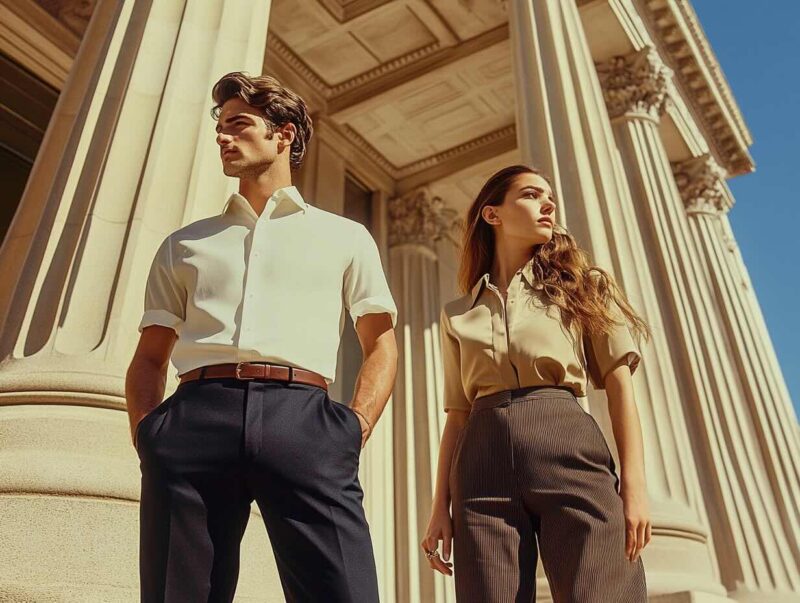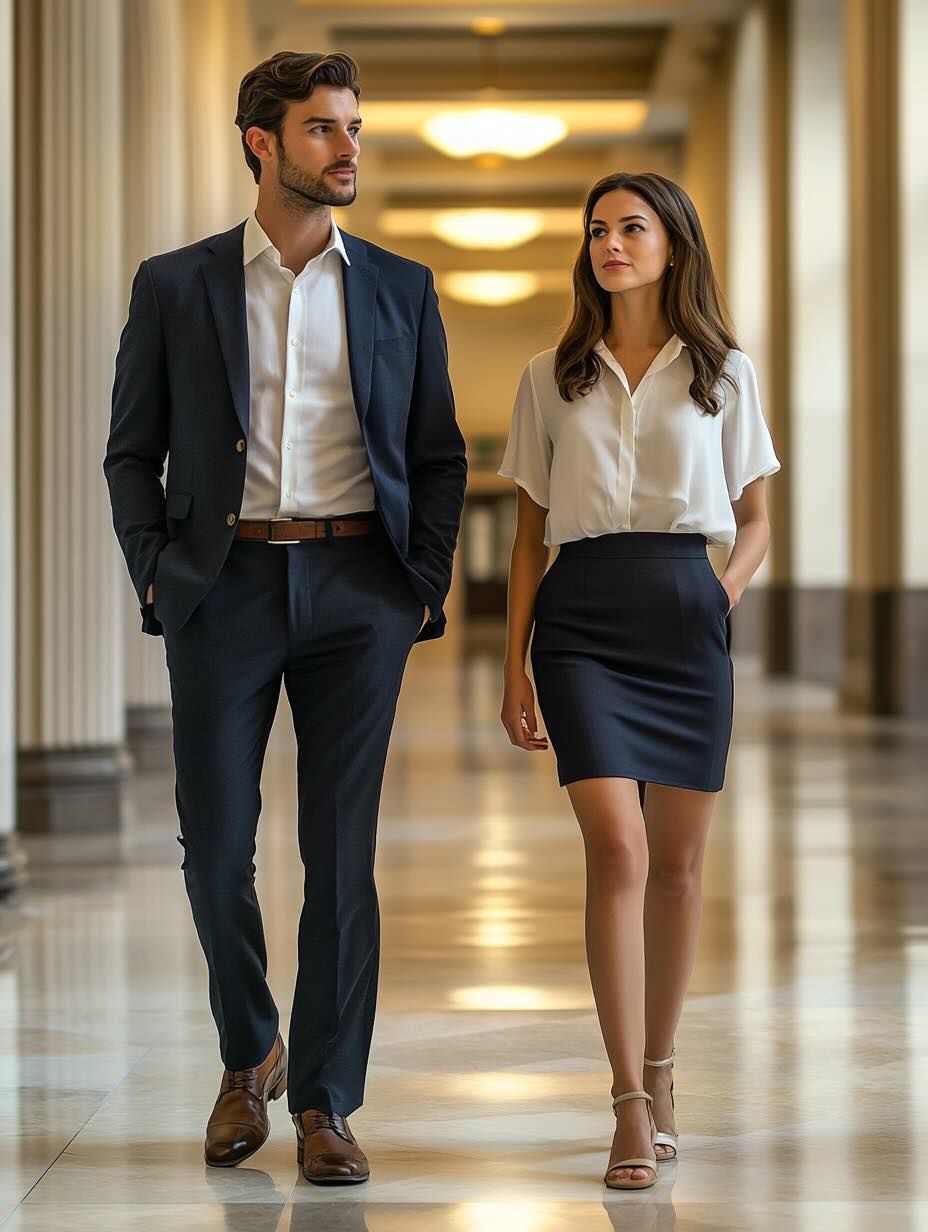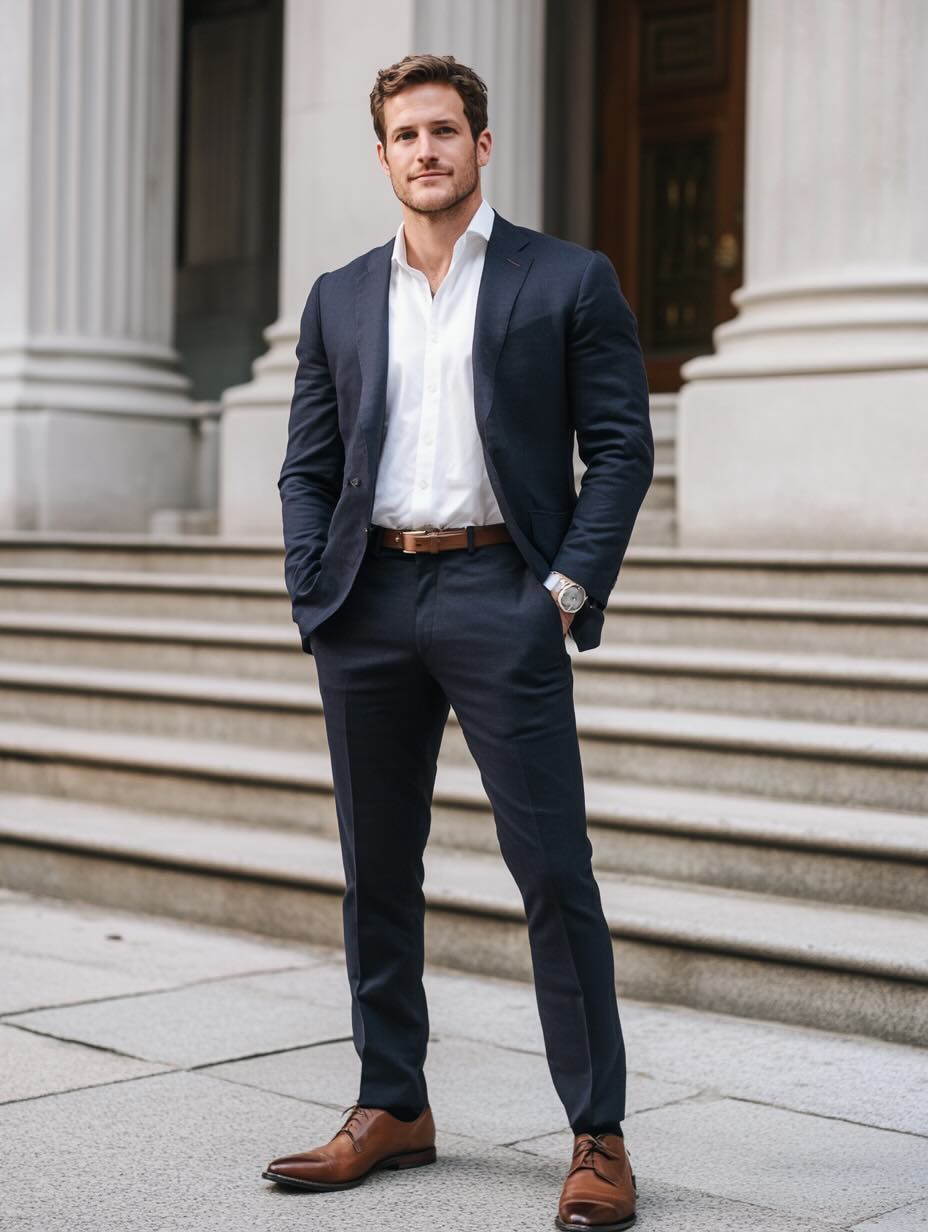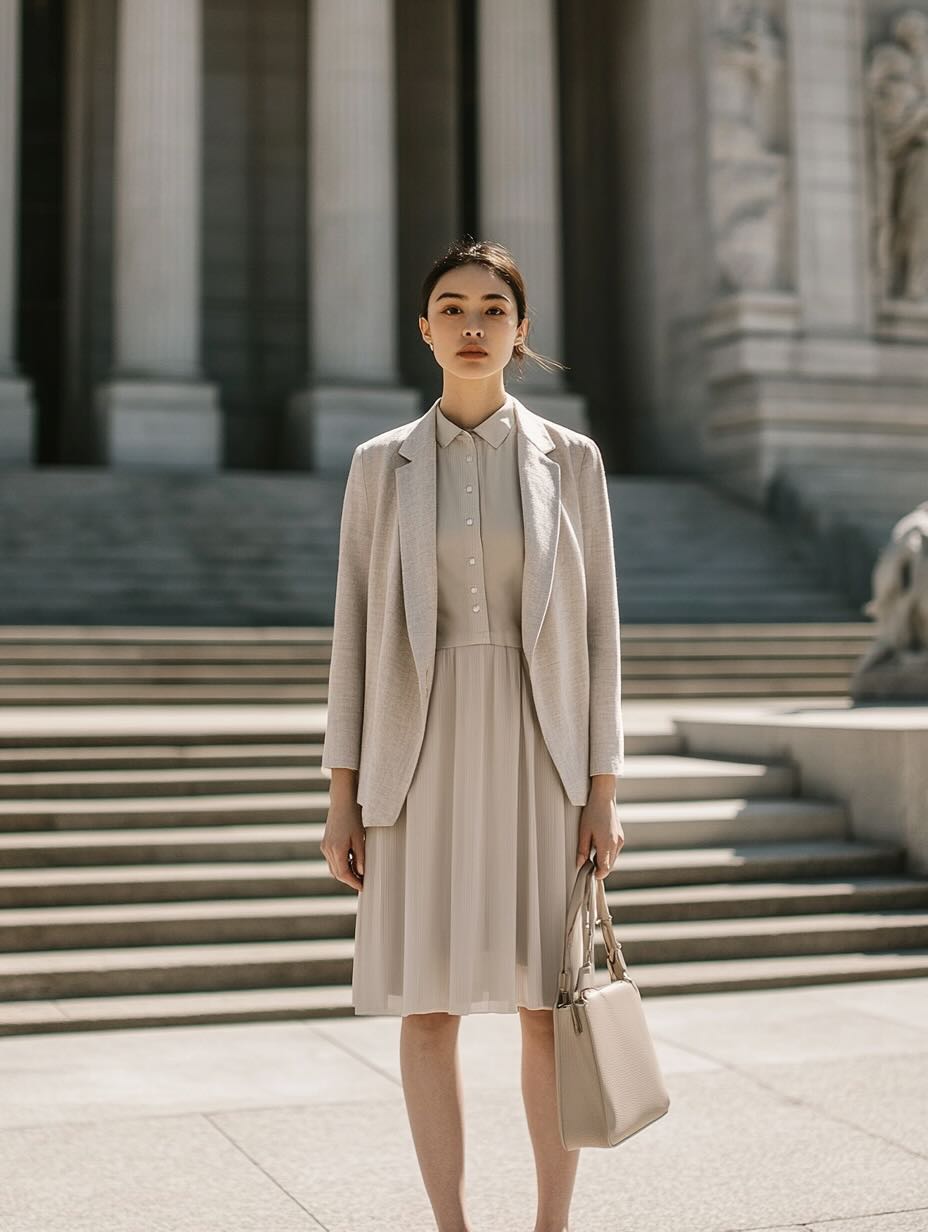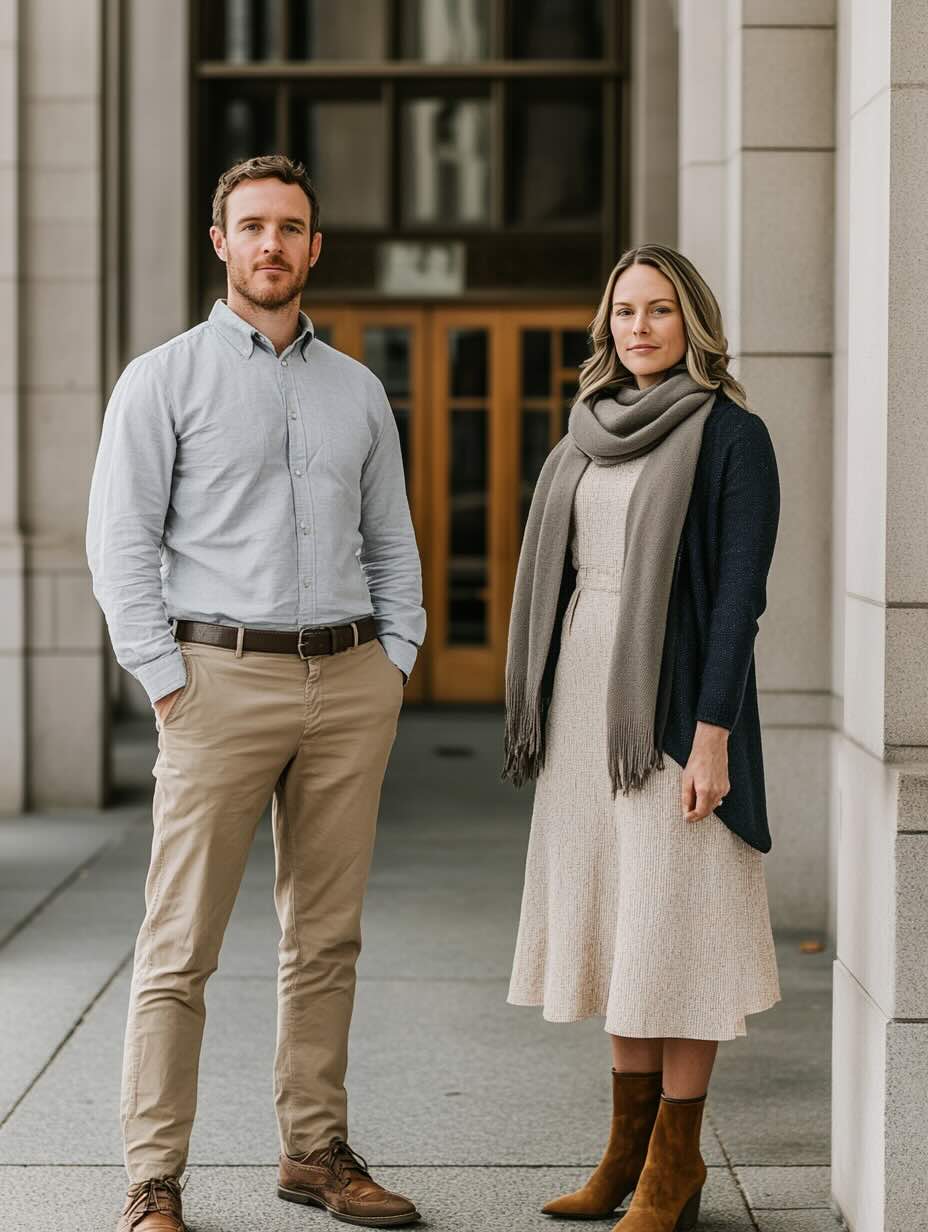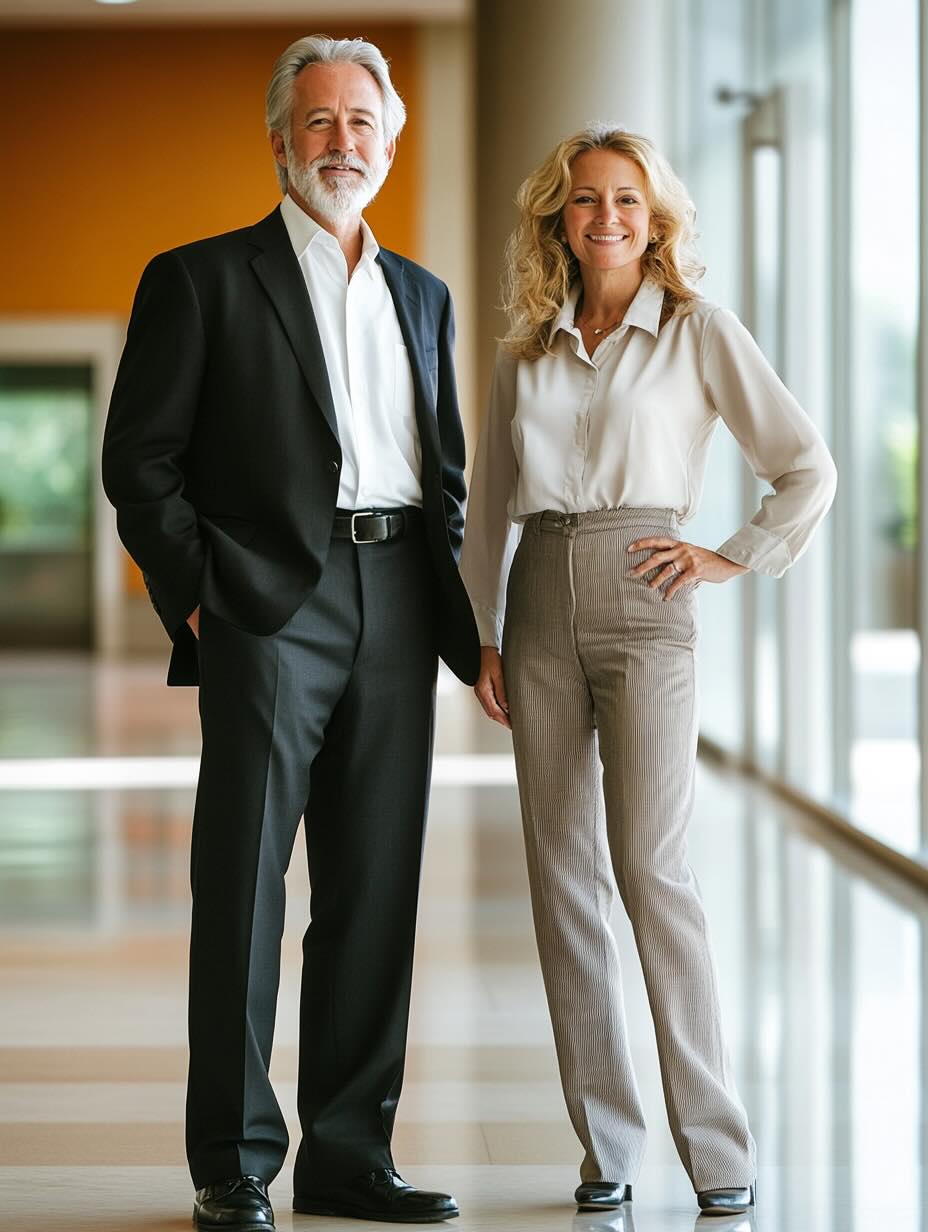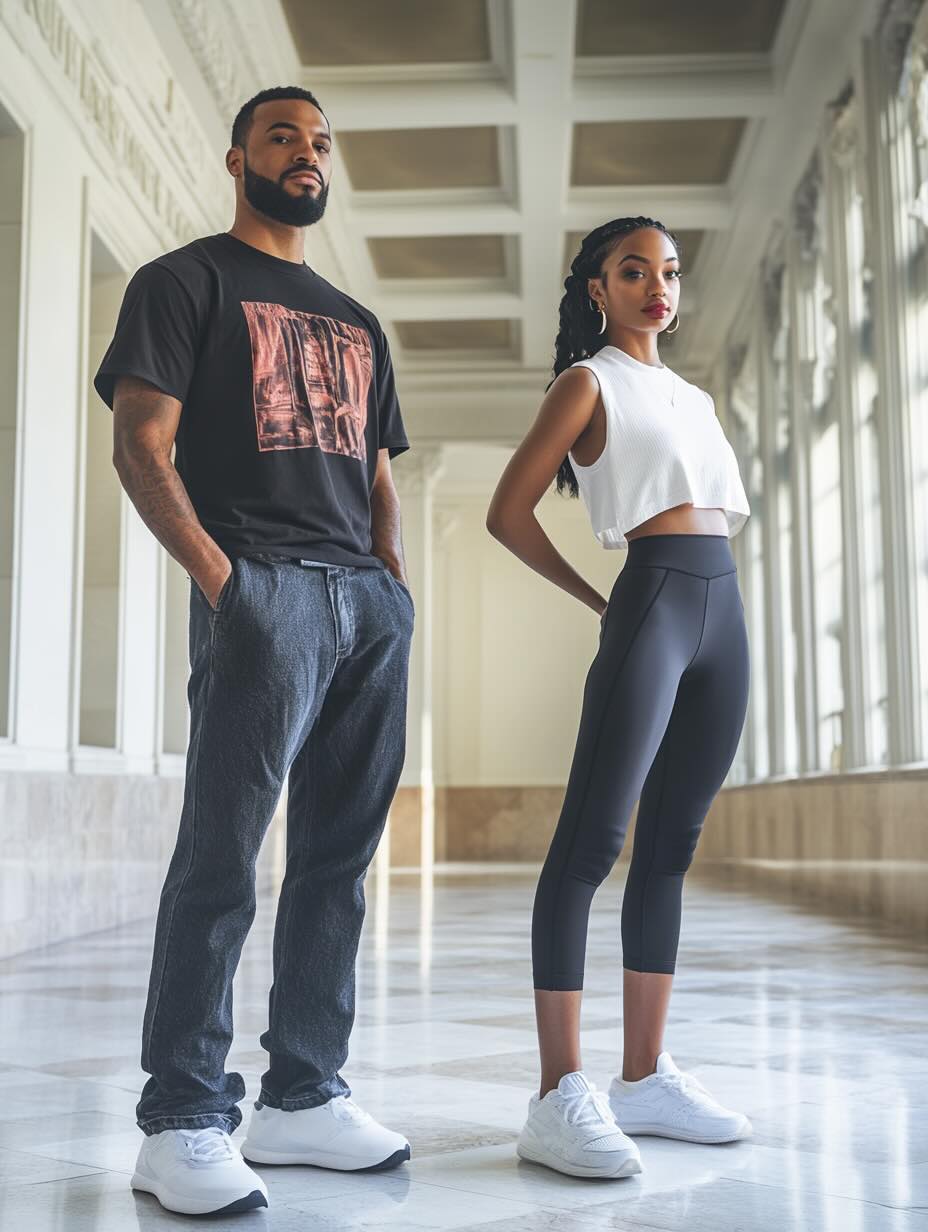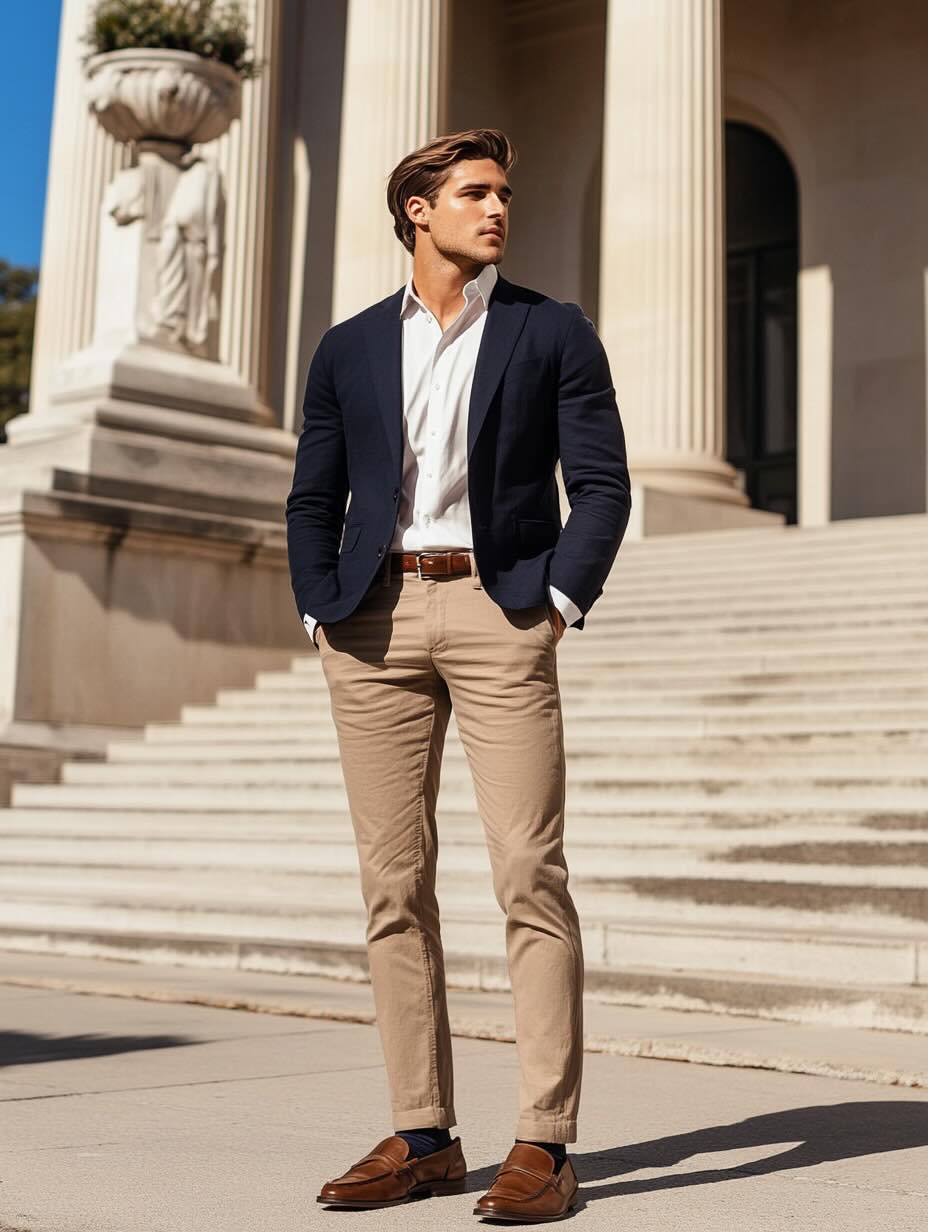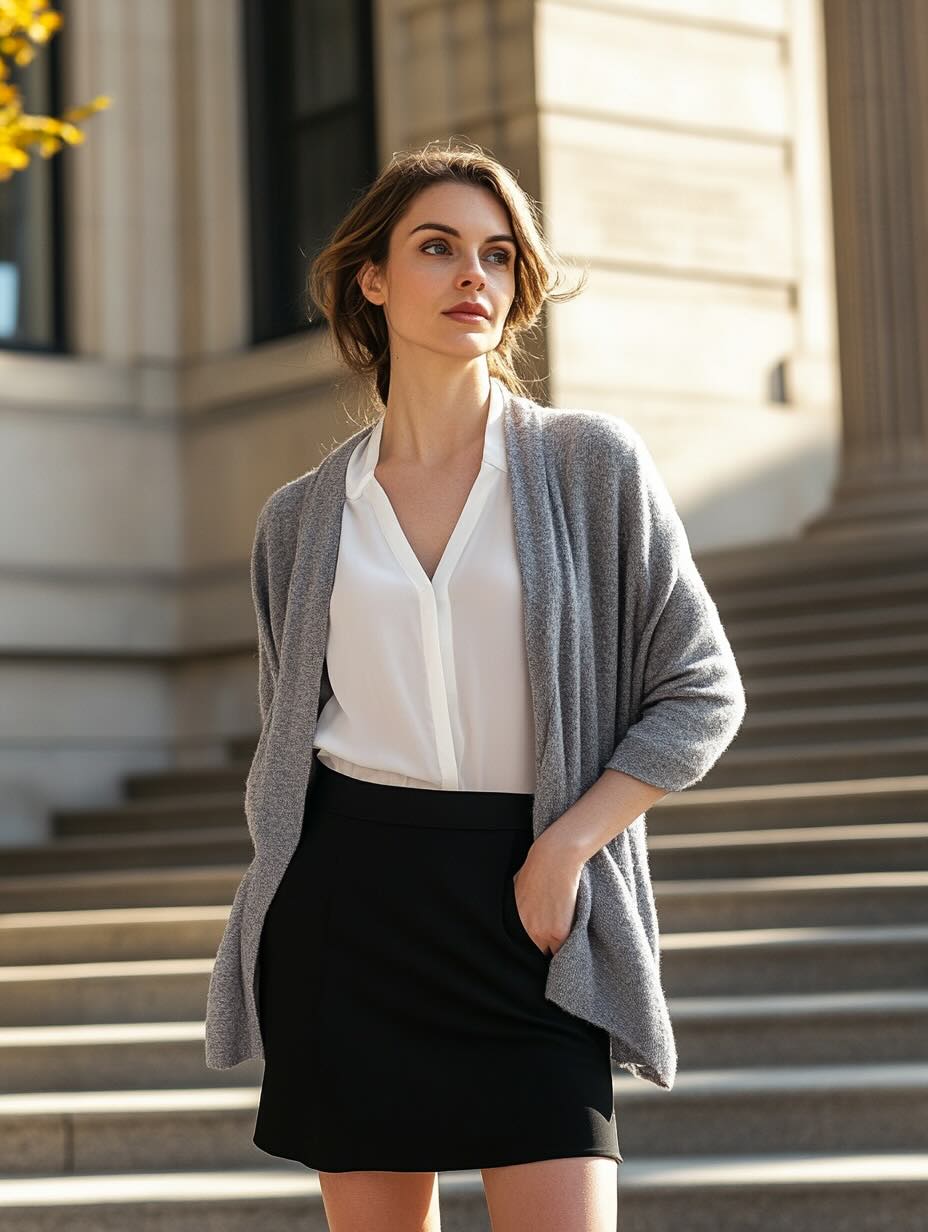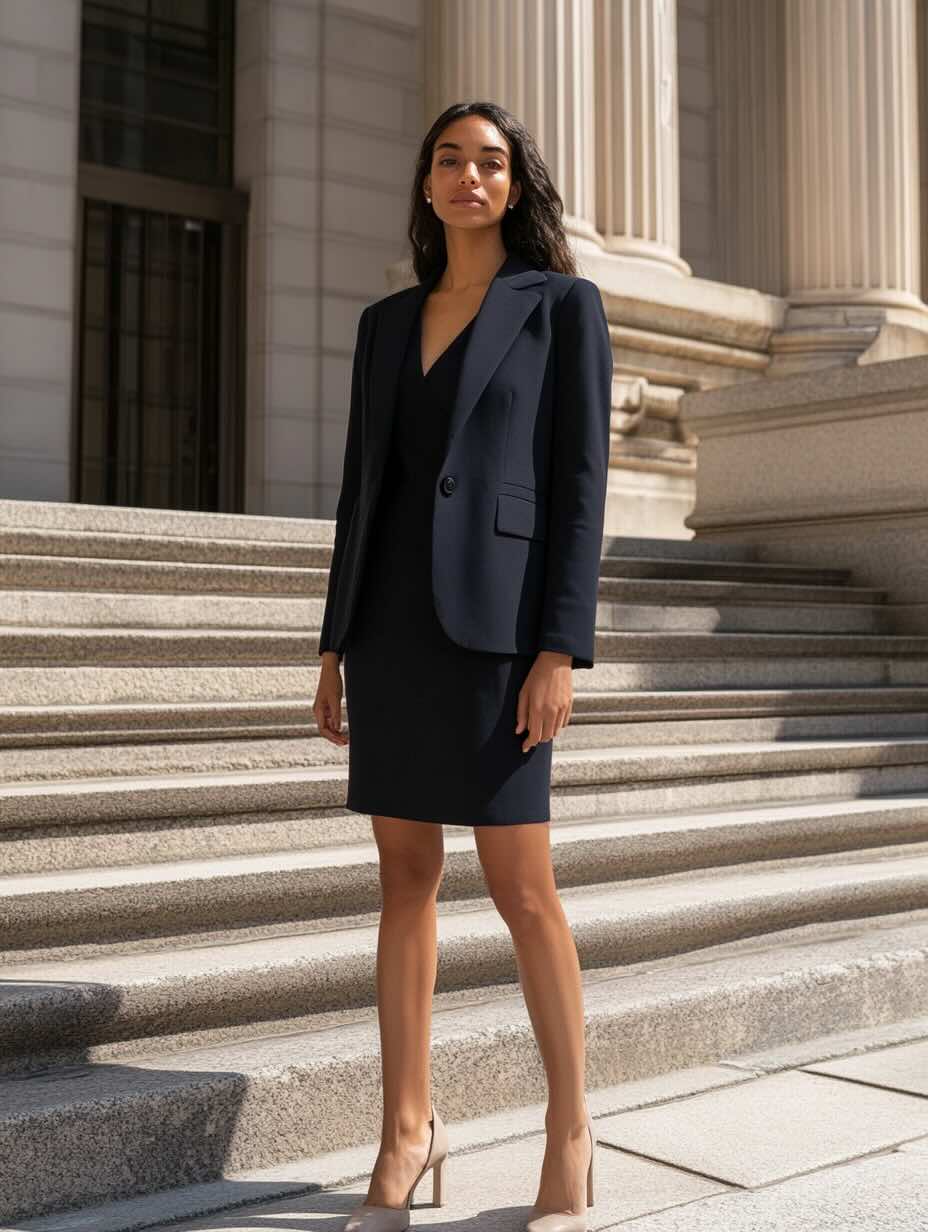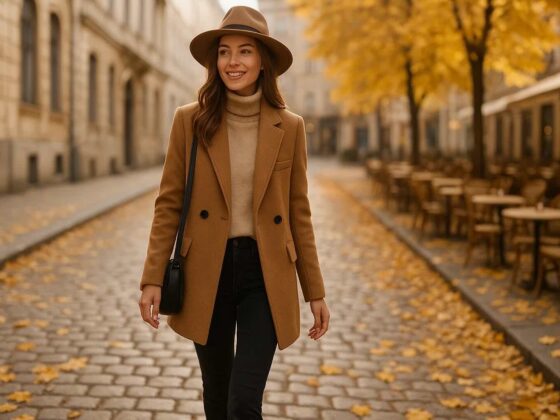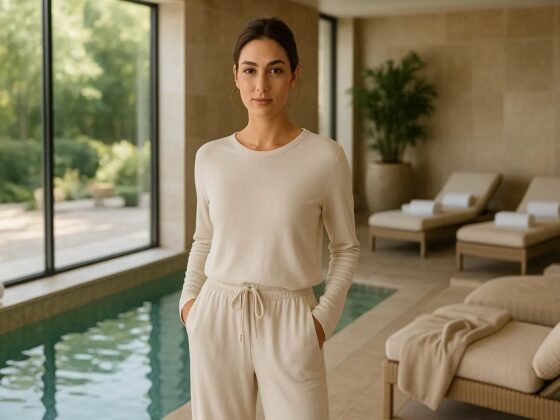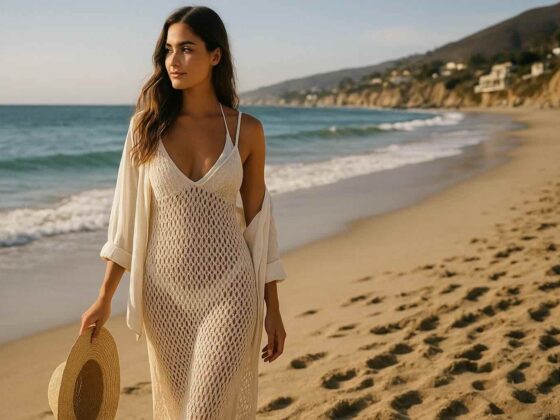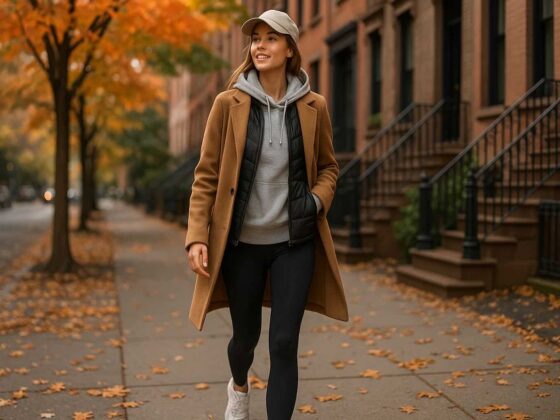When I first got that jury duty summons, I’ll admit, I was a bit stumped about what to wear. After all, it’s not exactly your typical day at the office or a casual weekend hangout. I knew that showing up looking sharp was important—not just to make a good impression but because it’s a way of respecting the legal process. You don’t need to go all out with a suit and tie, but you definitely don’t want to stroll in looking like you just rolled out of bed either.
This article is here to help you strike that perfect balance between comfortable and professional. I’ll share what works for both men and women, with practical tips for dressing in a way that’s appropriate, respectful, and—most importantly—easy to put together. So, if you’re scratching your head over your wardrobe, no worries! Let’s dive into this together.
Key Takeaways for What to Wear to Jury Duty
-
Jury Service Is a Serious Responsibility: When you report for juryservice, your attire should reflect the solemn nature of the proceedings. The dress code for jury duty is not official but should align with a professional and respectful tone. Clothing that is too revealing or too casual (like bare midriffs or sweatshirts) is not appropriate.
-
Comfort Meets Professionalism: You may wear comfortable but appropriate clothing, as jury service could require long hours of sitting. However, remember that overly relaxed attire, such as athletic gear, is discouraged. Please note, your outfit should be functional but respectful of the court proceedings.
-
Security and Prohibited Items: As you enter the courthouse, be mindful of what you bring. Items like pocket knives, sharp objects, and certain electronic devices might be confiscated during security checks. Please contact your local jury office ahead of time if you have specific questions about prohibited items.
-
Essential Accessories and Items Jurors are Selected: randomly, and once assigned to a courtroom, you may want to bring items like a sweater or jacket to stay comfortable in a potentially chilly courtroom. A modest handbag or briefcase is fine, but avoid large or bulky bags. Electronic devices such as your cell phone may be permitted in the courtroom but should be turned off during the trial.
-
Exceptions and Emergencies: If you have a medical excuse, you should inform the clerk or your local jury office as soon as possible. In case of severe weather or personal emergencies, there may be a cancellation or delay in your day of service. Always check with the local jury office or courthouse for updates on any changes.
General Guidelines
When I’m headed to jury duty, the first thing I remind myself is that professionalism is key. It’s not like dressing for a casual outing or even for work—it’s about striking a respectful, balanced tone. The courtroom has this unspoken dress code where showing up conservatively dressed speaks volumes. You don’t want to stand out in the wrong way; it’s a place where decorum matters. And I get it—sometimes it feels a bit stiff to dress up for something that might take up a chunk of your day, but it’s worth it.
Professionalism
Dressing conservatively doesn’t mean boring—it just means you’re thinking about the environment. You’ll want to steer toward more neutral tones, simple patterns, and classic styles. A sharp blouse, neat trousers, or a collared shirt with slacks can say, “I’m taking this seriously,” without overdoing it. Professionalism here isn’t about impressing anyone—it’s about showing respect for the judicial process and the people involved.
Dress Code Expectations
Although there might not be a strict dress code handed to you with that summons, there’s definitely an unofficial one. Think of it like this: what you wear should show that you’re aware of where you are. You wouldn’t roll into court in flip-flops or graphic tees—those are for lounging, not for a legal setting. Even though you’re not a lawyer or judge, your role as a juror is essential, and dressing appropriately reflects that responsibility. Neutral colors, simple cuts, and modest styles all hit the mark.
Comfort Considerations
Now, here’s the catch—jury duty can be a marathon, not a sprint. You might be sitting for hours on end, so comfort is just as important as looking put together. I always try to balance these two by choosing clothes that aren’t too restrictive. For instance, a well-fitted blazer that’s not too tight or comfortable flats that won’t leave my feet aching by the end of the day can make all the difference. When you feel good, you’ll be more focused on what matters: the case at hand.
Avoiding Distracting Elements
One thing I’ve learned over the years—subtlety is your friend. Avoid anything too flashy, bold, or overly casual. No one needs to be distracted by your neon tie or sparkly earrings while they’re trying to follow the evidence. Instead, opt for clean lines, understated accessories, and clothes that are free of bright patterns or logos. The goal here is to blend in, not stand out, so save your statement pieces for another occasion.
What to Wear for Men
When it comes to jury duty, what I aim for is a look that’s polished yet practical—something that shows I respect the setting but won’t have me fidgeting in my seat all day. The key here is to strike a balance with business casual basics. Think simple, clean lines without any unnecessary fuss.
Business Casual Basics
I usually start with a collared shirt—button-downs are a safe bet, and solid colors or subtle patterns work best. If I’m feeling a bit more relaxed, I’ll pick a light blue or white shirt. Nothing too loud; this isn’t the time for a floral print or wild checks. Next, slacks or khakis are my go-to, but if I want to go a bit more casual while staying appropriate, dark denim can work too—as long as it’s crisp and free from any wear and tear.
Blazers or jackets? Totally optional, but they add a bit of polish if I’m feeling like stepping up my game. A simple navy or gray blazer can turn a regular outfit into something that says, “I’m here, and I mean business.”
Shoes
When it comes to footwear, leather shoes are always a solid choice. Loafers, oxfords, or any clean pair of dress shoes work well for me. One thing I always avoid is anything that screams “too casual,” like sneakers or sandals. Footwear should be professional, but also comfortable enough for potentially long hours.
Outerwear
If the weather calls for it, I like to keep my outerwear simple and neutral. A classic overcoat or trench coat in a color like black, gray, or navy does the trick. It’s functional without feeling too formal, and it’ll keep me looking neat, no matter how cold it gets outside.
As for accessories, I keep things minimal. A wristwatch and maybe a wedding ring are fine, but hats indoors? That’s a hard no. It’s always good to remember the courthouse isn’t a place for fashion risks—it’s about being respectful.
What to Avoid
Now, here’s where I draw the line. T-shirts, graphic tees, or tank tops are completely off-limits. Even if it’s hot out, those pieces belong at home. Ripped jeans, shorts, or anything too casual? Definitely not appropriate for this setting. As for shoes, anything in the realm of flip-flops, athletic shoes, or rugged boots should be skipped. And let’s not forget accessories—keep loud jewelry or strong colognes out of the equation. You want to look presentable, not distract everyone around you.
What to Wear for Women
When I’m prepping for jury duty, my goal is to look presentable without overthinking it. I’m aiming for professional and polished—nothing too flashy, but nothing that says, “I didn’t try.” It’s about keeping it simple, clean, and appropriate for a courthouse setting, while still feeling comfortable.
Business Casual Basics
I like to start with a modest blouse or top in a solid color or a soft pattern. Something like a classic white, light blue, or even a soft pastel usually works well. I steer clear of plunging necklines or anything too sheer—this is a court, after all, not a night out. For bottoms, tailored slacks or a knee-length skirt will do the trick. If I’m in the mood for something different, a well-cut dress with a conservative fit fits the bill perfectly.
Adding a blazer or cardigan is optional, but I find it adds a nice layer of polish to the outfit. Even if the weather’s warm, a light blazer instantly ups the professionalism of the look.
Shoes
Comfort is key for footwear because let’s be honest—jury duty can mean a lot of sitting and waiting. Closed-toe flats, loafers, or low-heeled pumps give me that perfect balance of professionalism and ease. I avoid high heels or anything that might leave me aching by the end of the day. Sandals and sneakers just don’t cut it for this setting. The shoes I pick should support me through potentially long hours without sacrificing a neat appearance.
Outerwear
If I’m heading out on a colder day, I keep my coat simple and professional. Neutral tones like black, navy, or beige work best—they go with everything and don’t draw unnecessary attention. Think of it like the icing on the cake—it pulls the whole look together while staying understated.
Accessories
When it comes to accessories, I keep things minimal and subtle. A pair of stud earrings, a simple necklace, and maybe a bracelet if I’m feeling fancy. Anything too large or clunky can be distracting, and the last thing I want is to make noise every time I move. As for fragrances, I keep it light—no need to overwhelm the room with perfume.
What to Avoid
There are a few things I always steer clear of when dressing for jury duty. Short skirts, revealing tops, or anything too form-fitting can send the wrong message. Loud prints or overly bright colors tend to distract more than they add to the outfit, so I stick to more neutral options. When it comes to makeup, I like to keep it natural—heavy makeup just doesn’t feel right for the occasion. Strong fragrances or large, noisy jewelry are also no-go’s in this setting. And of course, I avoid sneakers, flip-flops, or any shoe that doesn’t align with the professional tone I’m aiming for.
Seasonal Considerations
When the weather changes, so do my wardrobe choices, but my mindset stays the same—professionalism with a pinch of practicality. No matter the season, I’m keeping it appropriate for the courtroom while staying comfortable for the climate outside.
Warm Weather
In the heat of summer, the goal is to stay cool without compromising modesty. I usually reach for lighter fabrics like cotton or linen, which help me stay comfortable when the temperatures rise. A breathable blouse or a lightweight dress with a conservative cut fits the bill. Even though it’s warm, I avoid anything too revealing, keeping in mind that the courthouse is no place for shorts or sleeveless tops. The trick is to find that sweet spot where I’m dressed neatly without sweating through layers.
Cold Weather
When it’s cold, layering becomes my best friend. But here’s the thing—I make sure every layer is still neat and appropriate. I’ll start with a collared shirt or blouse and then add a sweater or cardigan for warmth. A tailored overcoat or trench keeps me warm while maintaining a polished look. If I’m layering up, I always make sure that each piece fits well and that nothing looks too bulky or out of place. The key is to stay cozy without sacrificing that clean, professional vibe.
Tips for Selecting Jury Duty Outfits
When it comes to choosing my jury duty outfit, I always keep a few simple rules in mind. These tips help me stay on track and avoid any wardrobe faux pas, so I’m focused on the courtroom, not my clothes.
Respect the Courtroom
First and foremost, I always remind myself that jury duty isn’t a casual event—it’s a civic responsibility. That means dressing with the dignity of the courtroom in mind. I choose clothes that show respect for the setting and everyone involved, from the judge to the other jurors. I avoid anything too casual or flashy because it’s important to present myself as serious and thoughtful.
Functionality over Fashion
While looking good is a bonus, comfort is crucial. Jury duty often involves long periods of sitting, so I prioritize functionality. For example, I’ll pick a soft, breathable fabric that doesn’t wrinkle easily, or shoes that won’t leave my feet sore by the end of the day. It’s all about finding that balance where I feel comfortable but still look put together.
Neutrals and Classic Styles
I always lean toward neutrals and classic styles when deciding what to wear. Earthy tones, blacks, and grays are my go-to because they’re timeless and always appropriate. A simple blouse paired with a classic skirt or trousers instantly looks polished without much effort. This way, I’m not worrying about whether my outfit is too trendy or loud for the courtroom.
Personal Grooming
Finally, no outfit is complete without good grooming. For me, that means showing up clean and neat, with tidy hair and trimmed nails. It’s a small detail, but it can make a big difference. It shows that I’ve taken the time to prepare and that I’m taking my role as a juror seriously. And whether it’s a simple hairstyle or a clean shave, personal grooming complements the effort I’ve put into choosing the right clothes for the day.
What Not to Wear to The Courthouse: General
When I’m getting ready for jury duty, I always keep one thing in mind: the courtroom isn’t the place for casual, relaxed outfits. The goal is to strike a balance between looking respectful and feeling comfortable without venturing into territory that’s too laid-back or inappropriate. There are some definite “don’ts” when it comes to jury duty attire, and it’s important to steer clear of these fashion faux pas.
Avoid Overly Casual Clothing
One rule I always follow is avoiding anything that looks too relaxed. Graphic tees, tank tops, ripped jeans, shorts, and beachwear? They stay far away from my jury duty wardrobe. Even though comfort is key, looking overly casual gives the wrong impression in a courtroom setting. I save the casual looks for weekends and stick to outfits that are neat and appropriate.
Stay Away from Athletic Gear
I also steer clear of anything that screams “gym day.” Sweatpants, gym shoes, or sports jerseys might be fine for running errands, but they don’t belong in a courthouse. It’s important to remember that while athletic gear is comfy, it’s just too relaxed for the seriousness of jury duty. I make sure my clothes are comfortable without looking like I’m headed to the gym.
No Excessively Revealing or Tight Clothing
Another rule I stick to: nothing too revealing or tight. If I’m tugging at my shirt to make sure it covers everything or adjusting a skirt that’s too short, it’s not the right outfit for the occasion. The courtroom is a formal place, and it’s important to dress in a way that reflects that—no plunging necklines, body-hugging clothes, or anything that feels inappropriate for a professional environment.
Avoid Wearing Hats Inside
Lastly, unless it’s for religious reasons, I leave hats at home. Wearing a hat indoors can come across as disrespectful in a formal setting like the courthouse. It’s a small gesture, but removing my hat shows that I understand the gravity of the space and the proceedings.
Examples of Jury Duty Outfits
When I’m putting together an outfit for jury duty, I like to have a few go-to looks in mind. These outfits help me strike the perfect balance between professionalism and comfort without needing to overthink things. Here are a few examples that work well for both men and women, giving you options that look sharp but feel comfortable throughout the day.
Men’s Example 1: Effortless Sophistication for Jury Duty
Navy blazer, white button-down shirt, khaki pants, brown loafers.
This combination is one of my favorites. The navy blazer adds a touch of sophistication, while the white button-down shirt keeps things classic. Pairing this with khaki pants softens the look, making it less formal than a suit but still polished. Brown loafers complete the outfit, offering both comfort and a professional vibe.
Men’s Example 2: Relaxed Professionalism for Jury Duty
Light gray dress shirt, dark denim jeans, leather belt, black dress shoes.
If I’m aiming for something a little more relaxed but still courtroom-appropriate, this outfit hits the mark. The light gray dress shirt feels clean and neat without being overly formal. Dark denim jeans, as long as they’re in good condition, can work well in place of slacks. Add a leather belt and black dress shoes, and I’m ready to go—professional but not overly stiff.
Women’s Example 1: Timeless Elegance with Comfort for Jury Duty
Knee-length black skirt, white blouse, gray cardigan, closed-toe flats.
This look is one of my top choices for jury duty. The knee-length black skirt gives a modest, professional appearance, and pairing it with a crisp white blouse keeps it simple yet elegant. A gray cardigan adds a bit of warmth and comfort, without compromising on professionalism. Closed-toe flats make sure my feet stay happy all day long while still looking neat.
Women’s Example 2: Polished Professionalism for the Courtroom
Navy dress, black blazer, neutral-toned low heels.
For a slightly more formal outfit, I love this option. The navy dress has a conservative cut, perfect for a courtroom setting, and pairing it with a black blazer elevates the whole look. Low heels in a neutral tone keep things professional while ensuring comfort throughout the day. It’s a sharp look that still feels approachable.
Conclusion
When I report for jury service, the way I dress goes beyond just following a guideline—it’s about showing respect for the legal process and creating a positive impression in a formal setting. Whether you’re walking through the doors to go through a metal detector or sitting in the courtroom, your attire speaks to your understanding of the seriousness of the situation. It shows respect for the attorneys, security officers, and everyone involved in the trial.
As I think about my outfit, I always aim for a balance of comfort and professionalism. You may also want to choose clothing that keeps you feeling at ease but is still appropriate for the environment. When I receive my juror summons, I know that dressing thoughtfully is just one way I can contribute to the process. A polished appearance is essential in a space where the stakes are high, and every prospective juror plays a crucial role in ensuring justice is served.
Finally, if you ever need assistance or have specific concerns about what’s allowed to bring into the courthouse, feel free to request help from the personnel at the court. They can offer legal advice or instructions to guide you through the process. So when you prepare to report for jury, choose clothing that combines respect for the courtroom, professionalism, and a touch of comfort—you’ll be ready to represent yourself and the legal system with dignity.
